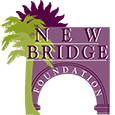
All-Time Winner
 When it comes to recovery from addiction, a relapse often occurs. No matter how hard an individual may work towards recovery, they’re never fully free of addiction. Relapse takes place when an individual in recovery begins abusing drugs or alcohol again. Not only is relapse frustrating, but it can also be dangerous. The body no longer has a tolerance to the substances, making overdose a higher risk. Quite often, an individual leaves treatment without a plan for relapse prevention and then finds themselves tempted to use again. However, drug rehab services in California are available to create a successful rehab prevention plan for clients to stick to.
When it comes to recovery from addiction, a relapse often occurs. No matter how hard an individual may work towards recovery, they’re never fully free of addiction. Relapse takes place when an individual in recovery begins abusing drugs or alcohol again. Not only is relapse frustrating, but it can also be dangerous. The body no longer has a tolerance to the substances, making overdose a higher risk. Quite often, an individual leaves treatment without a plan for relapse prevention and then finds themselves tempted to use again. However, drug rehab services in California are available to create a successful rehab prevention plan for clients to stick to.
Understanding Types of Relapse
Everyone experiences relapse differently. Different triggers, people, and situations can cause someone to relapse. These can fall under three main categories of relapse. Once someone understands the different types, they can create a more effective plan for relapse prevention.
The three main types are the following:
Emotional Relapse: Different emotions and behaviors will set an individual up for possible relapse. This can include anxiety, mood swings, and isolation.
Mental Relapse: This is when an individual is thinking about using. An individual will think about people or places they used to use with. It is also common to glamorize past use and mentally plan a relapse.
Physical Relapse: This is the physical act of relapse. An individual physically uses or consumes a harmful substance.
While substance abuse treatments can help with relapse prevention, nothing is a guarantee. Continuous support after treatment is key to increasing the chances of avoiding relapse. A relapse prevention plan in California can help individuals stay on the right path towards lasting recovery.
Warning Signs of Relapse
While in the process of recovery from addiction, many warning signs often hint at a relapse. Both the individual and their loved ones should be aware of these signs. Some of the most common signs of a relapse occurring include:
- Compulsive or risky behavior
- Destructive thoughts
- Neglecting coping skills
- Refusal to engage in or withdrawal from healthy habits
- Return to unhealthy behaviors and environments (people, places & things)
- Dishonesty or deception
- Mood swings
- Depression
- Anxiety
- Isolation or withdrawal from friends and family
It is highly important to keep an eye out for any of these signs. A successful relapse prevention plan will assist in doing so.
Resources for Dealing With Relapse
There are many different programs and therapies that can assist in the prevention of relapse. New Bridge Foundation® offers a wide variety of these in order to develop the best plan possible for each individual. Our programs include the following:
- Detoxification
- Short-Term Residential Rehab (Helios)
- Short-Term Outpatient Rehab (Helios)
- Long-Term Residential Rehab (START)
- Free Aftercare for Life
Therapies at New Bridge Foundation® also include:
A big part of preventing relapse is finding a treatment plan that works best for each individual’s needs. Utilizing a combination of addiction therapies and programs can ensure success in staying clean.
Start a Relapse Prevention Plan With New Bridge Foundation®
Getting help is important in any recovery. Having help from start to finish can ensure a successful recovery from addiction. At New Bridge Foundation®, we work hard to create a complete and detailed relapse prevention plan for our clients once they finish with our programs. We understand the importance of continued support, after treatment, for our clients as they continue striving to achieve their goals. Reach out to New Bridge Foundation® today at 866.772.8491 to get professional help in creating and sticking to a relapse prevention plan in California.
